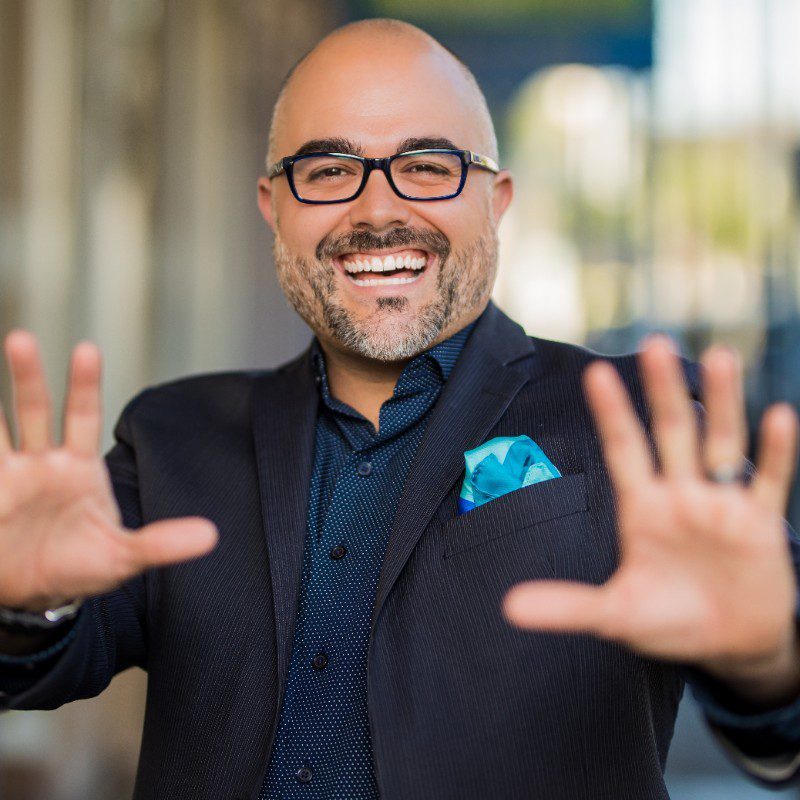Michael J. Fox’s latest documentary, “Still”, is our Call to Adventure
Telling a sad sack story about Parkinson’s disease (PD) is boring. That’s what Michael J. Fox tells us in the first ten minutes of his new biographical documentary, Still (available on Apple TV+). He’s not only right, he’s showing all of us how to change the trajectory of PD: by telling our own heroic journeys, including the good, the bad and the ugly.

I’ve studied film and story telling for almost 30 years now. I recently finished my PhD in Interdisciplinary Health Sciences, studying the effect of improvisation and storytelling on PD. Still is a fantastic example of the type of storytelling that needs to be done in order to make an impact and enact the changes we all need to live better.
There are two main obstacles in engaging storytelling: boredom and confusion. Knock these two out of the way and you’ve got a shot at hooking your audience and maybe even having them pine for more. In terms of PD, that kind of engagement can translate to awareness, funding for research, and programs to improve quality of life. Fox kicks boredom to the curb early by flashing back to the first time he met his quivering pinky in 1991. The scene feels like an homage to Apocalypse Now, complete with fan blades whirring and a hangover buzzing in his head. Fox’s war is internal with the acceptance of this strange force that is taking over his body and mind. We cut to a silhouetted Fox running away from us down a hallway. This is symbolic of how he treated the diagnosis for the first seven years.
We land in the present, seeing Fox’s difficulty in the simple act of brushing his teeth. He looks in the mirror, but he’s not 100 percent sure who is looking back at him. Fox looks directly into the camera as he talks with Still’s Director, Davis Guggenheim. Fox is defiant, declaring, while he’s got some advanced symptoms associated with PD, he’s not pathetic. He is, in his own words, a “tough son of a bitch”. We see evidence of this moments later when he falls while walking outside his New York City apartment. “That happened”, he deadpans. A woman he just passed by immediately moves to help him up. Fox gets back on his feet and quips, “It was nice meeting you. You knocked me off my feet”. Tough, indeed. And that sense of humor is one of the many keys to Fox’s kingdom. The story is then told, very effectively, in a series of reflections against modern revelations. The clips of Fox’s massive volume of professional work are woven into great effect throughout.
Fox was diagnosed with PD in 1991 at 29 years old. He announced he had it in 1998. Seven years of living in the public eye as one of the most recognizable people in the world and simultaneously in the PD closet…Why? Shame, fear of the future, loss of opportunity now – all of this and more. The familiar “I can handle this” was certainly part of the early denial. Part of it, too, was how hard he’d worked to achieve his success. He wasn’t even ten years into his meteoric rise as an actor. The thought of crashing down due to what was largely thought of by many as an “old person’s disease” simply didn’t compute.
Fox’s denial is common, not only within the PD community, but also in storytelling. By reframing having PD as a Heroic Journey, in the model of Joseph Campbell’s classic mythological research, the individual is challenged to act heroically in response to this incurable condition.
The Hero’s Journey rose to prominence in the 1980’s, around the same time as Fox’s career took off, thanks to a seven-page memo written by then-Disney Story Consultant, Christopher Vogler. In it, Vogler draws from Campbell’s work to label the common patterns found in stories in successful films (see diagram). I used Vogler and Campbell’s work in my dissertation, running a pilot program for people with PD. The results are published in the academic journal, Heroism Science (https://www.yesandexercise.org/about-3).
Fox is undoubtedly familiar with these terms due to his professional acumen. While these interpretations are subjective (these stages do not need to happen sequentially in every story), here is one possible set of stages in Fox’s journey laid out in Still: The Ordinary World was his life before the diagnosis. The Call to adventure was the diagnosis. The Refusal of the Call was the period he tried to hide from PD. His wife, Tracy, could be seen as a Mentor. His Crossing of the Threshold could be the decision to marry Tracy – because she was a woman who made him feel vulnerable, would hold him to account and help him see a part of himself he didn’t like to exist. Tests, allies, and enemies showed up in many areas including trying to break into Hollywood and how he handled his rapid rise to fame. The Approach to the Inmost Cave was the tension of living with all the elements of a successful career, the woman he loved, his newborn children, a demanding career in the public eye, and a disease he was trying to deny. Ultimately, The Ordeal would include admitting his alcoholism and knowing he’d have to make changes. The Reward included an improved family and personal life and the Road Back returned him to his acting roots on the hit show, Spin City. At the time, film stars rarely went back to television. His Resurrection came while sitting down with Barbara Walters in 1998 and sharing his PD diagnosis. The Return with Elixir was the founding of the Michael J. Fox Foundation.
Michael J. Fox’s documentary film, Still on Apple TV+ is a must-see for everyone in the Parkinson’s disease (PD) community. As important, courageous, and spectacular of a voice as Fox is, he is just one. We all know the line, “If you’ve met one person with PD, you’ve met one person with PD”. That can be seen, paradoxically, as both a source of frustration and a tremendous opportunity. The more individualized the illness, the more important the voice of each person experiencing it from a research perspective. By telling our stories from multiple angles, including care partners and family members, we help to understand the prevalence, perspective and potency of PD and light the path to increased quality of life and, someday, a cure.
Robert Cochrane, PhD, is founder of Yes, And…Exercise, a nonprofit organization that offers courses in improvisation and storytelling to improve quality of life measures for the PD community. For more information, please visit www.yesandexercise.org.

























